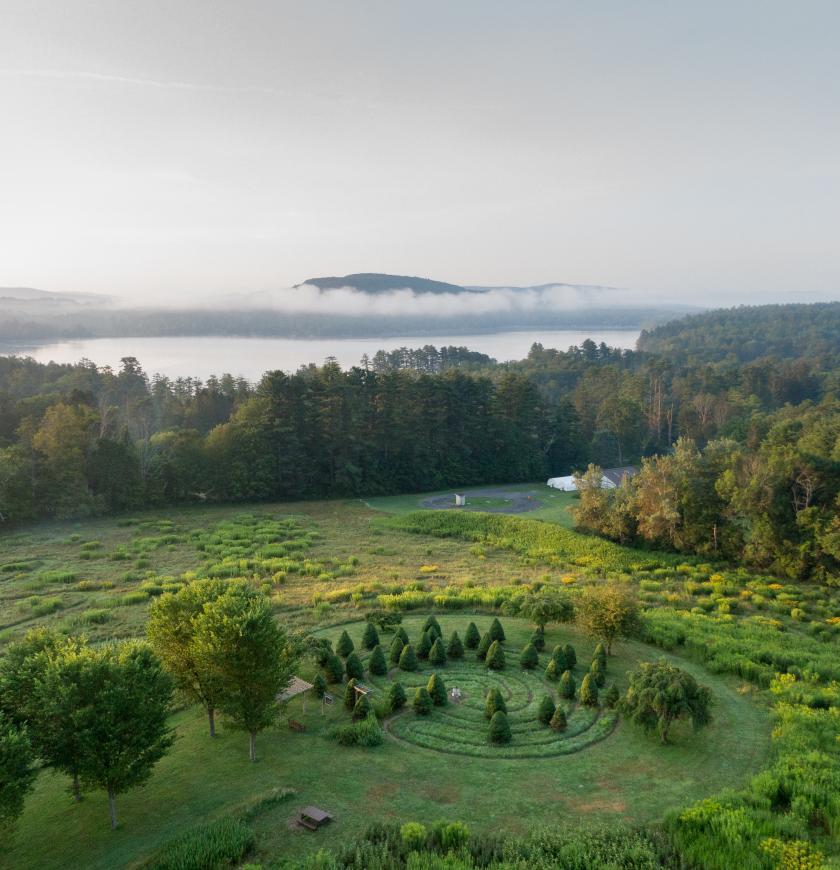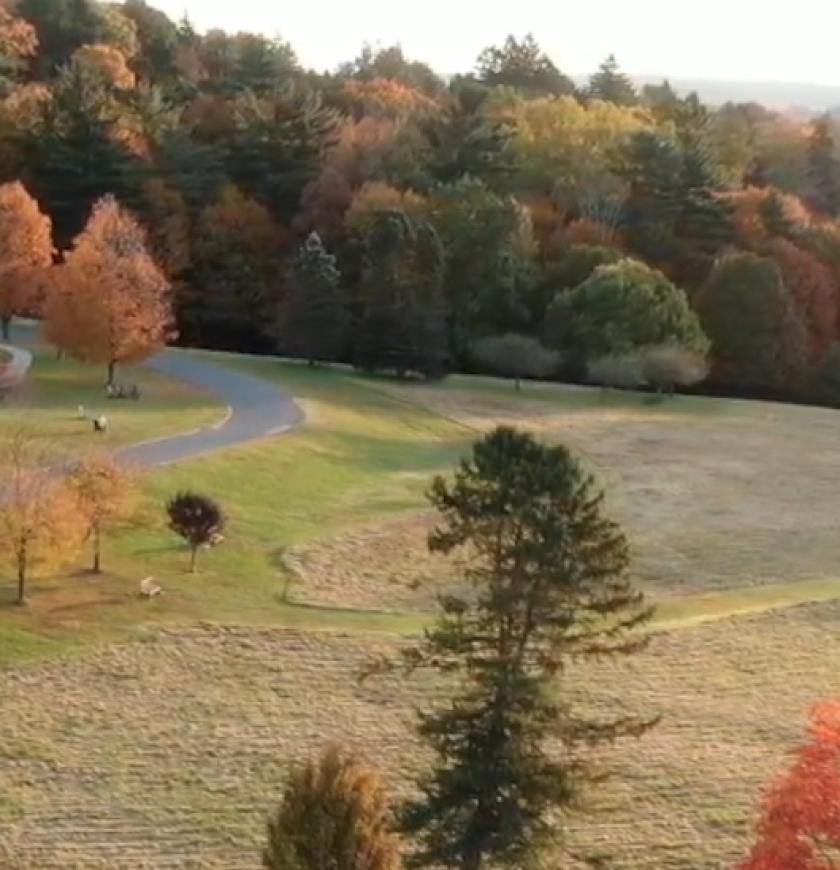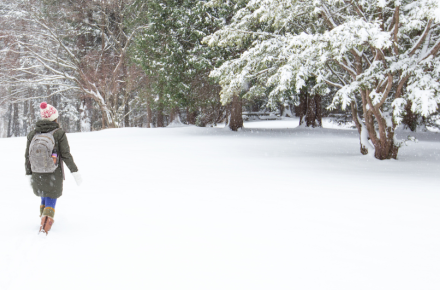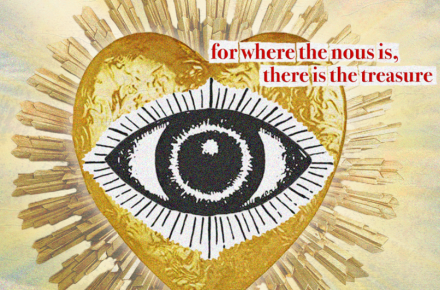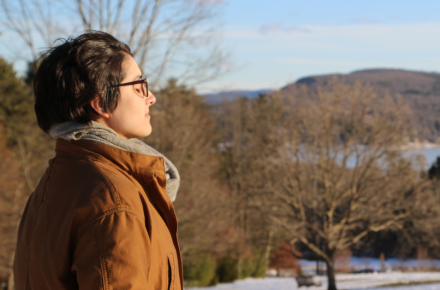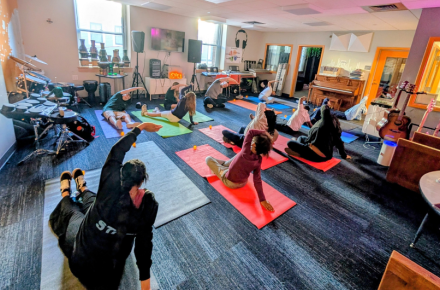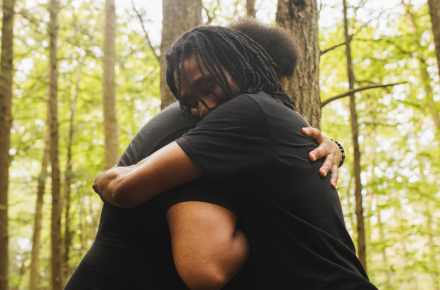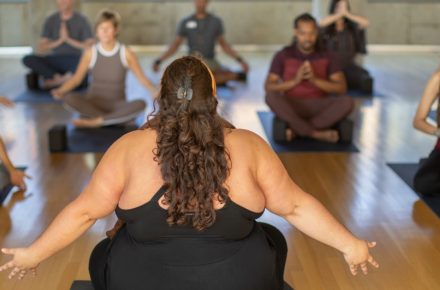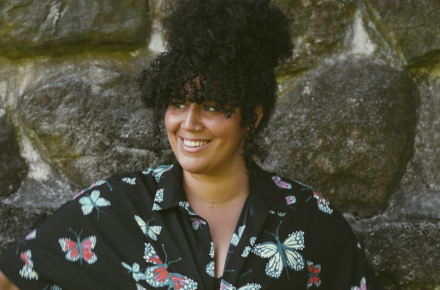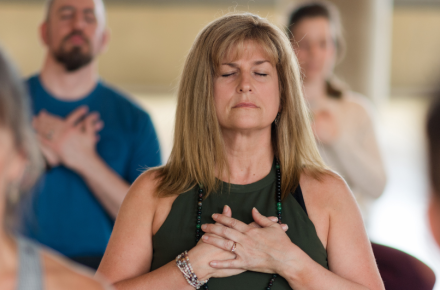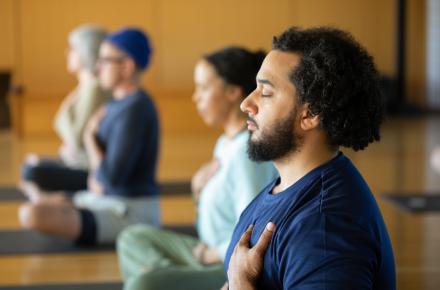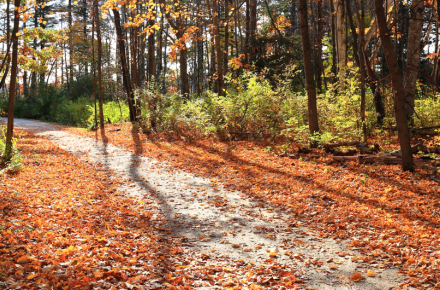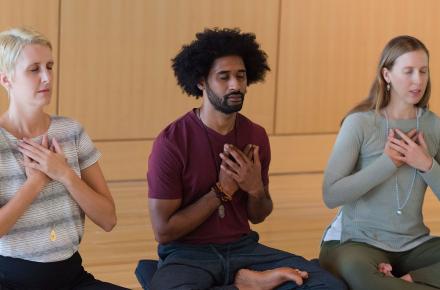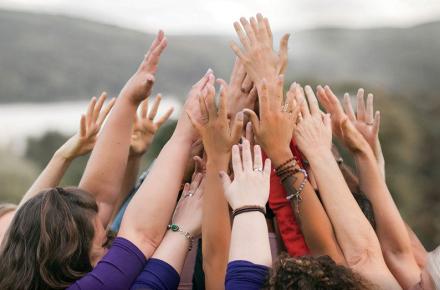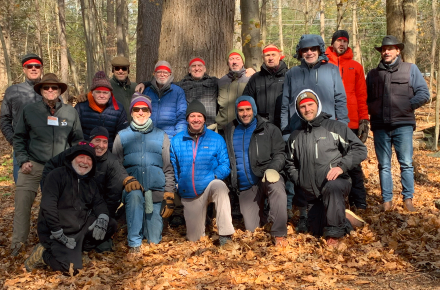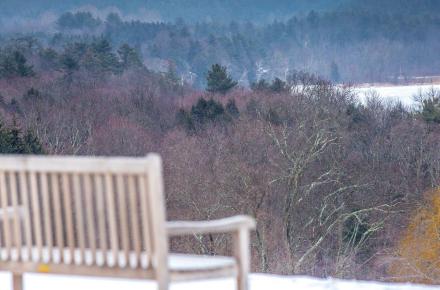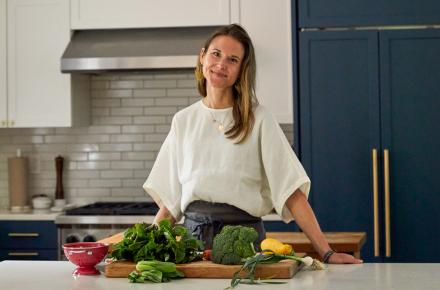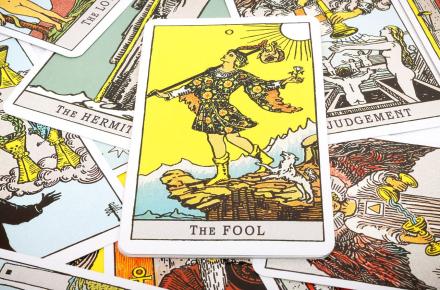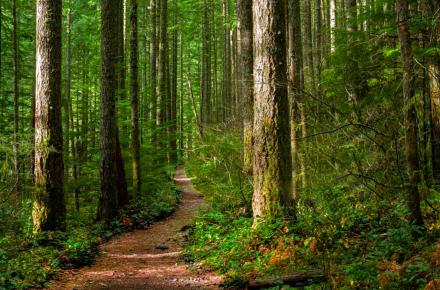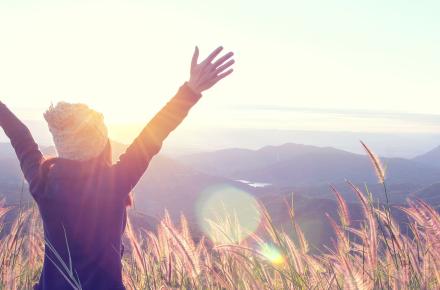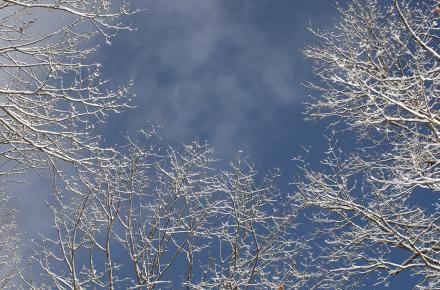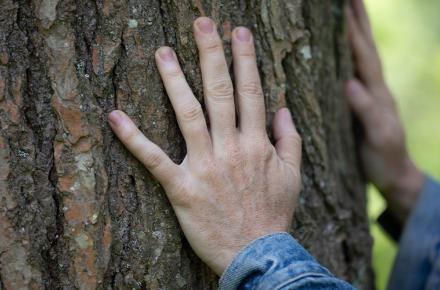The Story Our Grandchildren Will Tell About Climate Change
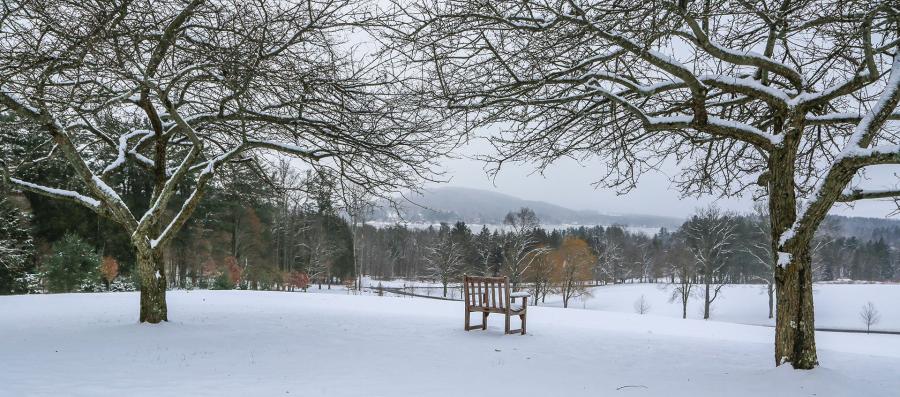
Our grandchildren will tell their grandchildren our story, the story of the early 21st century, when an amazing change took place all over this world. They’ll share the legend of how we sent global warming packing: how we kicked it to the curb and took responsibility for our very lives. In Kripalu’s lexicon, it is the story of how we collectively and individually claimed our dharma.
It is also the story of fractured political systems, gross inequities, and social movements. It’s the account of myriad rapidly-evolving technologies, like delicately limned battery structures and decentralized solar energy networks, which would replace our frightening, ubiquitous dependence on fossil fuels. It is the inspiring story of leadership: how people in charge—in charge of countries and cities, of digital platforms and medical centers, of universities and athletic franchises, of fashion houses and breweries, of yoga studios and coffee shops—took swift and decisive action wherever they could to participate. To be part of an historic, universal transition toward a zero-carbon way of life.
This is also the story of big money: how the gatekeepers of massive funds decided to divest everything from operations facilitating the problem of climate change. It’s the saga of an intentional pivot by the world’s corporations, institutions, sovereign funds, and economies to be part of the global solution.
It is also a business case about risk avoidance: the dangerous, compounding, and obvious examples of man-made disruption. It’s the giant, unfurling scroll of mounting scientific data, month after month, in which records for heat, precipitation, drought, and winds were shattered; and weather maps were recoded with colors to indicate new ranges and extremes; and expensive coastal property values might well plummet.
It’s the story of hardened meteorologists who were reduced to tweeting in all caps: I’VE NEVER SEEN ANYTHING LIKE THIS; and partisan politics that faded away as flood waters rose. “If this isn’t climate change, I don’t know what is,” said Miami’s Republican mayor as Hurricane Irma took aim last September.
Most importantly, this is the story of how we prevailed. It’s an extraordinary legend of how we found our strength: how we brought the best practices of ancient spiritual yogi wisdom to bear on the modern challenge of global warming. It’s how we harnessed the power of mindfulness to develop an authentic, revitalized personal resilience for a new era. It’s how we returned to simple exercises like breathing, sitting still, listening, mediating, and getting outdoors, in order to develop our latent qualities of resilience, harmony, and effectiveness.
It’s how we remembered that we human beings are ridiculously finite and impossibly arrogant: we aren’t the most important thing in the world, after all. Nature will win every time. It’s how we learned to shed that arrogance, along with the companion faults of fear, doubt, complacency, cynicism, and despair.
This is the story of how we got up out of our chairs and became part of the solution. It’s the story of how we vanquished the lazy, petulant appeal of clinging to a doomed status quo and doing nothing. It’s how we stopped being foolish. It’s the story of how we finally became responsible for ourselves and for each other. It’s how we realized the enormity of what was at stake, took heart, gathered together, multiplied, and prevailed.
As I write, the American public is waking up to the reality that our esteemed scientists are spot-on: climate change is real. It acts as a threat multiplier to extreme weather like hurricanes, floods, wildfires, and bombogenesis. All of these dramatic events are on regular display, if not just outside the window then on our ubiquitous screens. So then, ours is also the marvelous story of how decent people realized that the climate was indeed changing—just as the scientists warned it would—and how they decided to do something about it. It’s how millions and then billions of people processed that conditions were becoming progressively worse—not better, or leveling off—threatening property, money, sustenance, and health. And committed to fixing it.
Future generations may be flabbergasted by our fraught struggle on this. What took us so long? How did a critical mass of us finally become alarmed and demand change? How did we reach deep within to develop our strongest, clearest, and most effective authentic selves?
This is the story of a vast, dawning awareness that something was going terribly wrong everywhere. It is the story of a few prescient heroes who went viral. Because fixing climate change was not only a matter of technology, transportation, finance, food, and policy. It was also a matter of the human spirit. It meant fighting for what was right, and, if necessary, persisting when the outlook was dim, and lighting the way forward no matter what.
Find out about upcoming programs with Sarah Finnie Robinson at Kripalu.
© Kripalu Center for Yoga & Health. All rights reserved. To request permission to reprint, please email editor@kripalu.org.

